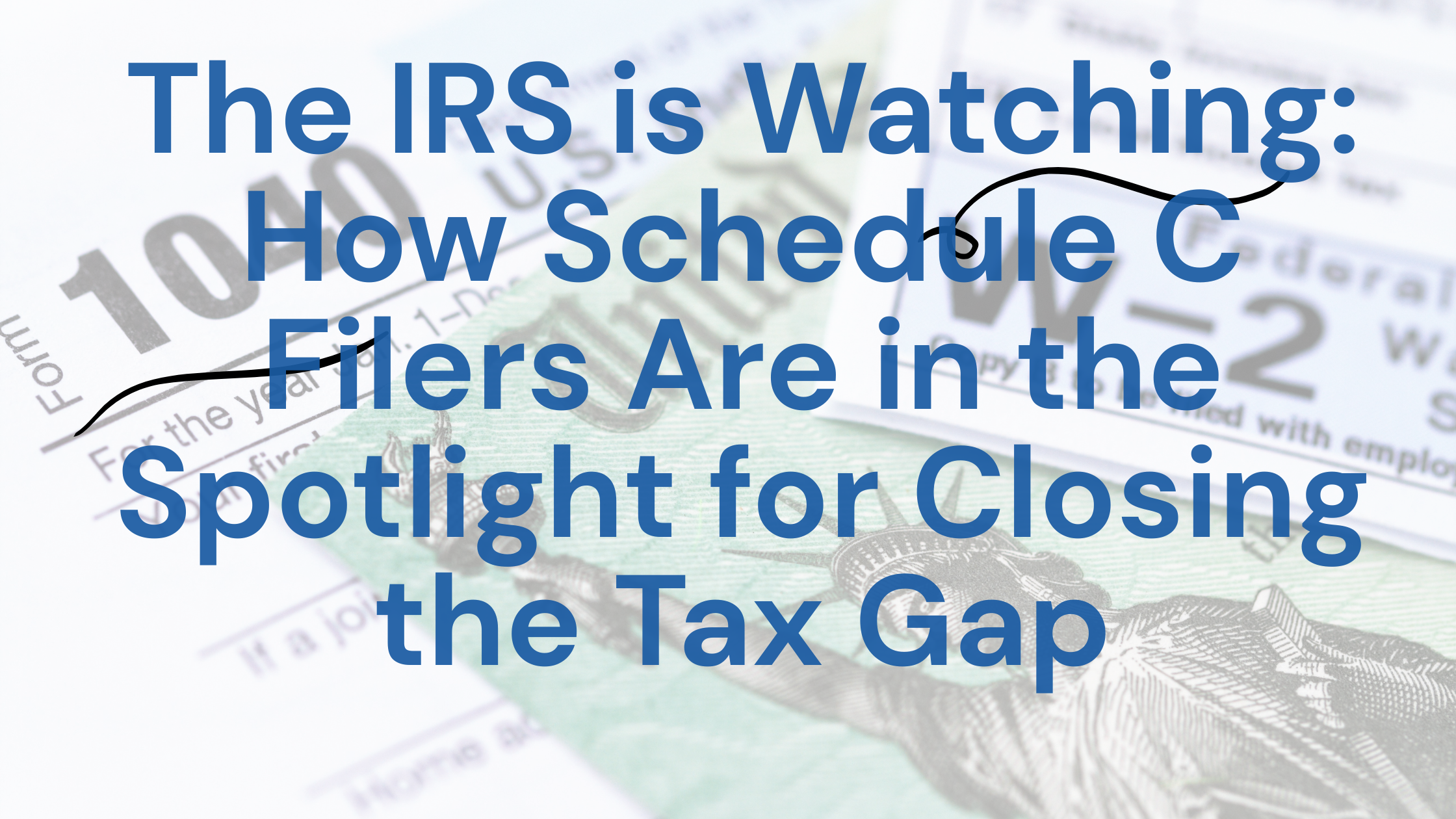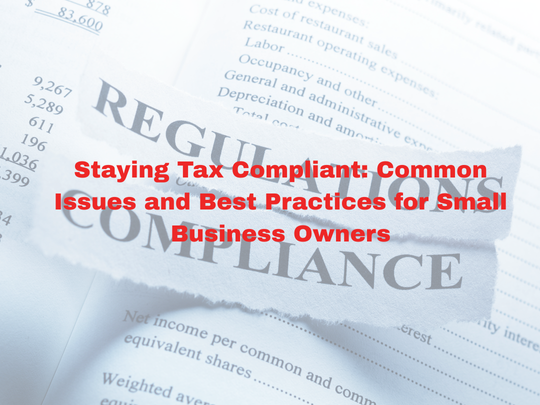Staying Tax Compliant: Common Issues and Best Practices for Small Business Owners
Running a small business comes with endless to-do lists — and tax compliance should be at the top. The IRS has made it clear: if you claim a business expense, you must be able to prove it. Failing to do so can lead to disallowed deductions, penalties, and unnecessary stress during an audit.
Here’s what every small business owner needs to know to stay on the right side of the tax law — and keep more money in their pocket.
Why This Matters: The Tax Gap and Small Businesses
The “tax gap” — the difference between what taxpayers owe and what’s actually paid — is estimated at $625 billion annually. A big chunk of that comes from small business owners, especially sole proprietors filing Schedule C.
Two main issues drive this gap:
- Underreporting income (missing sales or cash payments)
- Overstating deductions (claiming expenses without proof or personal expenses as business costs)
The IRS has increased its enforcement in these areas, so sloppy recordkeeping is riskier than ever.
Common Mistakes That Get Businesses in Trouble
From IRS audit experience, these are frequent red flags:
- Mixing personal and business expenses in the same account
- Not keeping receipts, invoices, or contracts to back up deductions
- Missing auto mileage logs or other “listed property” records
- Failing to issue 1099 forms to contractors
- Claiming deductions for hobby activities without a profit motive
- Not performing bank reconciliations or keeping an updated general ledger
- Misclassifying assets (e.g., reporting equipment as “supplies”)
Best Practices to Stay Tax Compliant
- Understand “Ordinary and Necessary” Expenses
Under IRS Code §162, a deductible business expense must be:
- Ordinary: Common and accepted in your industry
- Necessary: Helpful and appropriate for your business operations
- Keep Strong Documentation
- Maintain invoices, receipts, cancelled checks, and contracts
- Use separate bank accounts and credit cards for business
- Keep electronic backups of important records
- Document the who, what, where, when, and why for each expense
- Log Vehicle and Travel Expenses Correctly
- Keep a mileage log for each trip (date, purpose, miles driven)
- For meals, note the business purpose and attendees
- Remember: entertainment expenses are no longer deductible
- Avoid Hobby Loss Problems
If your business looks like a hobby, the IRS may disallow deductions. Show you’re serious by:
- Registering your business locally
- Keeping proper books and records
- Advertising your services
- Maintaining a website and business stationery
- Stay Consistent and Accurate
- Reconcile accounts monthly
- Track fixed assets and depreciation properly
- File all required information returns (1099s)
- Avoid large year-to-year deduction swings without explanation
Bottom Line
The easiest way to stay tax compliant is to treat every expense as if the IRS will ask for proof — because they might. Good recordkeeping isn’t just about avoiding penalties; it helps you understand your true financial picture and make smarter business decisions.
When in doubt, work with a qualified tax professional who can help you stay compliant and maximize deductions the right way.




